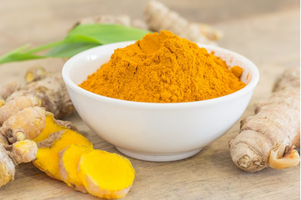
Managing Stress with Ayurveda
The stress you experience in your daily life is playing a far bigger role than you would like to believe. Underestimating its antagonistic presence is extremely naïve, and can prove detrimental to your quality of life.
Ayurveda has often emphasized on how the mind and body are intricately connected. As such, if the body is disturbed, the mind will feel its effects. On the other hand, if the mind is in disarray, the body will be afflicted with its consequences as well.
Ayurveda has always been the flag bearer of holistic wellbeing, which subscribes to the idea of optimal health for both the mind and body alike. This is precisely why taking stress seriously is so imperative if you at all seek to live a long, fulfilling and healthy life.
Understanding Stress
Stress is an inevitable part of life. It is universally experienced by humans across the globe, and in some form is also very important. However, it is the excessive stress plaguing mankind today that has proved to be the root cause for a variety of health conditions.
Heart problems, high cholesterol levels, diabetes, migraines, arthritis etc. all have one thing in common. That one thing is stress. The lives we live today riddled with the hustle of simply rushing from one day to another, marred with long hours of work and junk food to cope with such hours is really pushing humanity deeper down the rabbit hole of a pernicious lifestyle.
Insurmountable stress can compromise with our health on an emotional, physical and mental level. Ayurveda offers quite an effective perspective on how one can manage stress and take the reign over their lives, back into their own hands.
Ayurveda’s Perspective on Stress Management
Ayurveda mainly focuses on ten gunas aka qualities that are organized into ten pairs of opposites. Identifying the qualities exhibited by a particular problem allows you to indulge in its opposite nature in order to offset its symptoms and thus invite balance to your mind.
This group of ten gunas are either nourishing and building in nature, or the opposite, which is reducing and lighting in nature. The ten opposite gunas are listed below.
| Reducing , Lightening | Nourishing, Building |
| Light | Heavy |
| Hot | Cool |
| Dry | Oily |
| Sharp | Slow |
| Rough | Smooth |
| Liquid | Dense |
| Hard | Soft |
| Subtle | Gross |
| Mobile | Stable |
| Clear | Cloudy |
Each of these qualities is required by the human body in appropriate measures for optimal wellbeing. The problem arises when there is too much or too little of any of the above qualities.
When such an issue does arise, the opposite of these gunas is prescribed by Ayurveda to bring balance to the mind and body. This is how Ayurveda seeks to combat the issue of stress as well.
Ayurveda Remedies for Stress Management
We know what causes stress, and we also know of the consequences in store for us if stress isn’t managed properly. By balancing the above mentioned gunas, Ayurveda can help effectively reduce stress and thus enable us to live happier and healthier lives.
So how do you invite such a balance into your lives?
1 – Take a Break
This is perhaps the most important step recommended by Ayurveda in a bid to manage stress properly. We live in a competitive world, which demands a lot of physical and mental commitment from us in order to earn its rewards. It is in this pursuit of wealth and stature that one often forgets to focus on their mental stability.
Ayurveda advices slowing down every once in a while, or as often as possible. It encourages introspection. It recommends following a daily routine that involves taking one gentle step at a time to process the events transpiring around you and thus better dealing with the stress resulting from it.
2 – Self Care
Indulge in self-care. Taking better care of yourself can help you manage stress efficiently. When we say better care, we mean taking a bath to release tension and relax your mind. You can add baking soda and ginger powder to your bath to increase internal health.
Drinking herbal tea with ingredients like rose, hibiscus and Tulsi can be extremely soothing and act as a great stress reliever.
You can also try oil pulling by swishing and gargling your mouth with coconut oil. Oil pulling can remove toxins from your mouth, and apart from being great for your oral health, can also help you relax.
Oil massage can be another great way to release stress, relax your muscles and forget about your daily woes.
3 – Nasya
Nasya is the method of applying medicated oil to the nasal passages. It is extremely beneficial to release accumulated stress, enable unobstructed breathing and soothe delicate tissues.
Applying three to five drops of Nasya oil regularly can be really helpful in your stress management endeavors. Please note, Nasya should be avoided by menstruating and pregnant women.
4 – Exercise
There are a number of physical exercises one can perform to find relief from stress. Ayurveda offers a wide gallery of different physically demanding routines that can help oneself in stress management in a variety of different ways.
Some of these methods are as follows:
5 - Pranayama
Pranayama is a breathing exercise that requires the breathing in of Prana, meaning life force to rejuvenate every tissue and cell in the body. Practicing Pranayama every day can help relieve accumulated stress, release tension and improve one’s mental wellbeing.
6 - Yoga
Yoga, with its asanas, can be extremely beneficial in moving prana in the body. Apart from this, it can also help in rejuvenating tissues and cells in the body, clear stagnation, encourage fluidity and release tension.
7 - Meditation
Meditation is the most prominently recommended remedy for stress management. It can help build focus, help shape a more positive perspective on the problems facing us and result in clarity of thought. Meditation has helped many effectively manage stress and can help you do the same.
8 – Herbs
Herbs play an important role in the pursuit of stress management. Ayurveda recommends certain key herbal remedies that specifically play a crucial role in releasing tension and relieving oneself from stress. Some of these herbs are listed below:
Ashwagandha
Known as an adaptogen, Ashwagandha in its tablet, liquid, or powdered form can be beneficial in calming the mind and coping with stress.
Brahmi
Brahmi is known for being sattvic in nature. As such, it can be used to effectively balance the nervous system and mind. It has a cooling effect on the mind, and can help calm Pitta and Vata doshas.
Spices
Spices such as cumin, coriander and turmeric can all be great allies in your fight against stress. A tea made with each of these as key ingredients can help relieve stress
The Bottom Line
Stress is having a negative effect on us silently without many of us even being aware of its consequences. Managing stress is crucial in having a fulfilled and healthy life. Ayurveda can help you accomplish that. With the help of the right physical and herbal remedies, Ayurveda can help you manage stress and thus improve your quality of life by tenfold.
We recommend consulting with an Ayurveda practitioner to know which remedy will best suit your mind-body dosha type.
Note: The information in this article is intended for your educational use only and is not a substitute for professional medical advice, diagnosis, or treatment. Always seek the advice of your physician or other qualified health providers with any questions you may have regarding a medical condition and before undertaking any diet, supplement, fitness, or other health programs.






